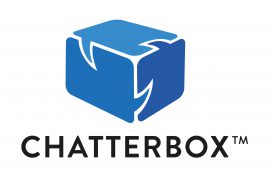Paul LeBlanc leads the Southern New Hampshire University (SNHU) which has taken dramatic and innovative approaches in tertiary education. Beyond the buzzwords, they have made real-world disruptions and are running a truly alternative model. They are a teaching-only, non-profit, and almost fully online university serving non-traditional students who were not able to jump through the linear set of hoops from kindergarten to graduate school due to life circumstances or mindset. LeBlanc gave a keynote at the ASCILITE2018 conference and some of this is summarised here.
The TL;DR version is that they are expanding tertiary education into populations that face challenges, ranging from affordability, flexibility, student support, and seemingly unbreakable bureaucratic issues, which prevent them from being successful in a typical degree program. SNHU has been able to overcome these challenges through various approaches, such as getting federal funding for a degree structure which is not based on the traditional credit-hour.
Flexibility in study time, student support, and cost are the three pillars of innovation which make SNHU and its students a very different type of university
My takeaways from his keynote presentation were the two major ways in which SNHU has differentiated itself from a more typical model of education. The first is the breaking of the credit-hour and semesterised scheduling with their competency-based model. This authentically allows students to self-pace their learning, ensuring they reach a genuine and effective level of competency in every aspect of their degree. The second key innovation has been an economically-viable and sustainable solution to the depersonalisation students often experience in larger institutions, particularly those which are fully online.
He was open about saying their students are more fragile
An example would be a single parent undertaking full-time studies while working two jobs. Such a student may be only a single car repair or large electricity bill away from dropping out of a regular university. This is partly due to the rigid scheduling of the semester-based credit-hour model. LeBlanc informed us there are tens of millions of students who have dropped out of traditional universities in the United States and these students are worse off than never having studied at all; not only do they carry debt they must repay, but they also do not benefit from a degree in their labour-earning potential.
On the other hand, a student at SNHU can complete a 2 year Associate’s Degree fully online. This might take them 6 months or it could take them 4 years, based on how quickly they can demonstrate competency. This is done at their own pace and based on a single course fee. Gone is the concept of a ‘semester’ in their fully online classrooms. Students can take a break without penalty and not study for 3 or 4 months while they have to work double shifts at their jobs. The removal of time as a limiting factor is a revolution because in a traditional semester-based scenario, that student would certainly have failed, possibly having to retake the course multiple times and pay multiple sets of fees before they could scrape together a semester’s worth of uninterrupted study. More realistically, that student would drop out and suffer debt repayments for not even completing a degree because their circumstances may never allow them to fit into a semester model. SNHU’s model allows this type of student leading this type of life to benefit from tertiary education which advances equality and supports social justice.
Each student in the main program at SNHU is also assigned a support staff member who looks after them throughout their entire degree. It wasn’t clear what sort of student load these support staff have, but using the same federal grant or loan dollars to employ staff to provide real and meaningful support for a student made a lot of sense. What these students need is stability, emotional support, and encouragement to know someone cares about them. Making a few phone calls or sending some personal emails – not just personalised, but truly personal – has been demonstrated to make a huge difference for their students; they have incredible rates of retention and completion compared to similar service providers. The same funding spent in this novel way matches the needs of their mostly disadvantaged students.
In the end I did not find what they were doing to be in competition with the traditional university, but instead was an offering of higher education for students that no institution could ever reach or serve effectively in our current paradigm. Beyond their Associates Degree they have programs to work with refugees, job preparedness, non-degree courses, and even combined programs with high schools to have 18 year olds (even serving homeless youth at the RISE high school in Los Angeles, USA) graduate with a double high school and 2-year Associate’s degree. Overall LeBlanc and SNHU showcased an incredibly positive and inspiring message by breaking through bureaucratic barriers no one thought possible to free up time, support, and economic resources to help people in need. Tikkum olam!





